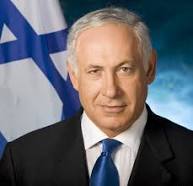Why are Israel, Saudi Arabia, and their congressional allies in both American political parties trying to kill an interim nuclear deal with Iran that effectively freezes (and in some instances rolls back) the Iranian nuclear program until a comprehensive deal can be reached to permanently limit the program so that Iran cannot build a nuclear bomb?
In the lead-up to the interim deal, if one wanted to be charitable, one could have assumed that these hawks were acting as the "bad cop," using the threat of even more economic sanctions to strengthen the Obama administration's "good cop" hand to exert maximum pressure on Iran to limit its nuclear program. However, after an interim deal has been reached, these same hardliners are likely to push Congress to ratchet up sanctions anyway in a blatant attempt to kill that deal and further negotiations.
In both America and Israel, politicians customarily need to pretend to avoid war, even though intentions are otherwise. For example, before the U.S. invasion of Iraq, President George W. Bush blamed Saddam Hussein for kicking out international weapons inspectors trying to find what turned out to be nonexistent "weapons of mass destruction" -- a hostile act -- when the inspectors really exited that country because of the imminent U.S. attack. Of course, President Obama can likely successfully veto their efforts, but unfortunately their motivation for taking this barefaced course can only be attributed to rejecting peace for war with Iran.
Today's hawks have claimed falsely that the interim agreement rolls back no part of Iran's nuclear program and have vehemently opposed the deal because it is not tough enough.
First of all, generating enough fissionable material is the toughest step to building a nuclear bomb, and three paths exist to get there: 1) by further enriching uranium already enriched to 20 percent; 2) by using fast centrifuges to enrich 3.5 percent uranium; and 3) to make plutonium using a heavy water nuclear reactor.
The interim accord rolls back the first by requiring Iran to eliminate its stockpile of 20 percent uranium one way or another, and it essentially freezes numbers two and three. The second is frozen by prohibiting the installation and operation of new centrifuges and by capping Iran's stockpile of 3.5 percent uranium. The third is frozen by prohibiting Iran from testing or producing nuclear fuel for the Arak heavy water reactor or making it operational.
The agreement also provides for strict international inspections to make sure Iran is complying with this freeze/rollback. Meanwhile, the United States and the international community have kept the core of their economic sanctions -- shutting Iran out of the world's banking system and a ban on the importation of Iranian oil, the country's life's blood -- until a comprehensive deal can be reached, with only a minor unfreezing of certain Iranian overseas assets until then.
One might ask the hawks blatantly trying to scuttle the interim agreement what alternative they propose. They claim that they instead want a complete dismantling of Iran's nuclear program -- which is permitted by the Nuclear Nonproliferation Treaty as long as it is not used to make a bomb -- an outcome that has no chance of happening.
Meanwhile, during any complex and lengthy negotiation toward such an end state of nirvana, Iran could string the West along while continuing to make more progress toward getting the bomb. At least the interim agreement freezes the Iranian program until negotiations on a more comprehensive agreement can be attempted.
Even if those future negotiations eventually fail, it would seem that the interim agreement provides a "pareto improvement." This is a fancy economic term for making at least one party better off without making the other worse off. In this case, both parties seem better off because Iran gets some slight sanctions relief, and the West gets a verifiable freeze on Iran's nuclear program while an attempt is made to negotiate severe permanent constraints on Iran's ability to make a nuclear bomb.
The hawks -- the Israelis, the Saudis, and their congressional allies -- however, oppose this pareto improvement for the two negotiating parties, because it's not a pareto improvement for them. If the goal were to limit Iran's nuclear program, the interim agreement would seem to offer at least no downside.
However, if the real objective is to weaken Iran as power in the Middle East through a military attack by either the United States or Israel, using Iran's nuclear program as an excuse, the interim agreement -- and of course any future comprehensive agreement laying the Iranian nuclear issue to rest for good -- is a disaster because it removes the imperative for any military strike.
Behind the faà �ade of the Iran nuclear issue, what the hawks really fear is that a general rapprochement between the U.S. superpower and Iran, made possible by a nuclear deal, could lead to realignment in the Mideast region to the perceived detriment of Israel and Saudi Arabia, each of whose archenemy is Iran.
Their reasoning goes that if the United States settles some of its differences with Iran and has a better relationship with that country, Iran's power will grow at their expense. That explains the hawks' white-hot opposition to a rather benign interim agreement, which could eventually lead to peace, instead of war, with Iran.
Ivan Eland is Director of the Center on Peace & Liberty at The Independent Institute. Dr. Eland has spent 15 years working for Congress on national security issues, including stints as an investigator for the House Foreign Affairs Committee and Principal Defense Analyst at the Congressional Budget Office. His books includePartitioning for Peace: An Exit Strategy for Iraq The Empire Has No Clothes: U.S. Foreign Policy Exposed, and Putting "Defense" Back into U.S. Defense Policy.





